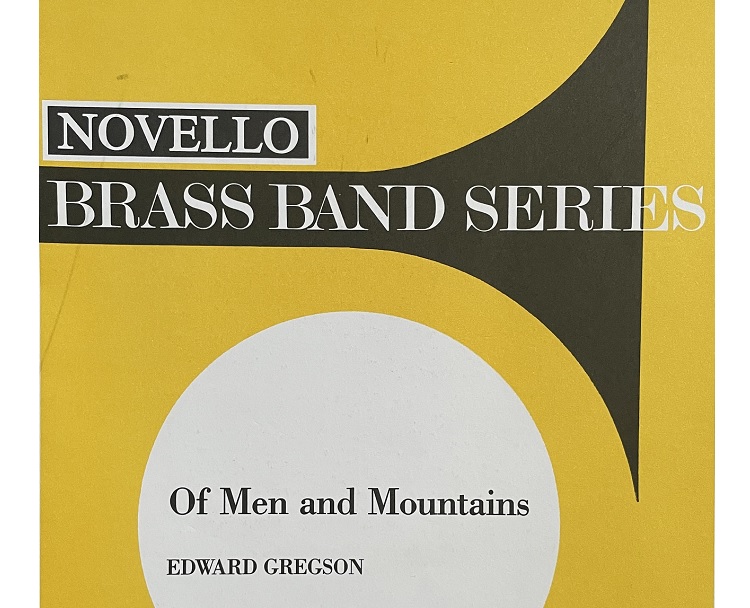
Of Men and Mountains returns...
Few major compositions for the brass band medium have been overlooked with such blind ignorance, or for so long, as Edward Gregson’s ‘Of Men and Mountains’.
What should have been one of the jewels of 1990’s brass band repertoire disappeared from the musical thought processes of major contest organisers on the grounds of its duration – left to occasionally appear with the rarity of a comet on a distant orbital musical ellipse.
Returns
Now it returns in a few months’ time, blazing a trail to the Royal Albert Hall for the National Championships of Great Britain.
It should have been performed there in 1991 – following ‘Connotations’ (1977) and ‘Dances & Arias’ (1984) as the Championship Section set-work
What should have been one of the jewels of 1990’s brass band repertoire disappeared from the musical thought processes of major contest organisers on the grounds of its duration – left to occasionally appear with the rarity of a comet on a distant orbital musical ellipse.
Abandoned
However, despite agreement with contest organisers Boosey & Hawkes, and following the reception gained after its commission and use at the 10th Dutch National Championships in late 1990 (“...the first British hearing of this new work will be awaited with interest”, said the British Bandsman), it was clumsily and contentiously abandoned.
The reason now seems almost laughable (although somewhat pertinent given the current attitudes in respect to musical output on the BBC). Using it would have meant the possibility of overrunning the pips heralding the BBC Radio 2, 6.00pm news.
At around 17-18 minutes in performance duration, it was deemed as being “too long”.
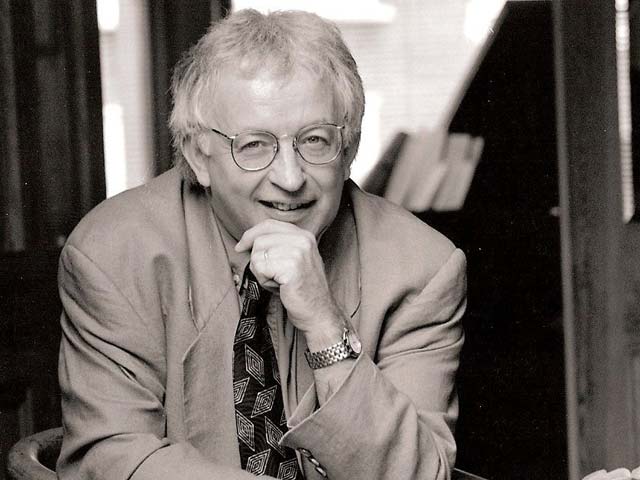
The composer was left hugely disappointed
Think Tank
In retrospect perhaps Boosey & Hawkes (who ran the contest) could have given that some thought when they allowed 23 bands to qualify for the Final - a figure that had increased from 18 in 1985 when ‘Cloudcatcher Fells’ had been used – and which itself came in at well over 17 minutes in length.
In their defence, Boosey & Hawkes had a lot to think about when it came to the National Championships at the time.
The new First Section was on the horizon, as was a change of date of the National Championships at the Albert Hall, whilst there were ongoing discussions about the functioning of the relationship between the Nationals and the then British Registry.
Not wishing to incur even more acrimony, in January 1991 Boosey’s announced the setting up of a ‘Think Tank’ of experts that would in their words, “advise in future about matters of importance to the brass band movement in general and to the National Championships of Great Britain in particular”.
Not wishing to incur even more acrimony, in January 1991 Boosey’s announced the setting up of a ‘Think Tank’ of experts that would in their words, “advise in future about matters of importance to the brass band movement in general and to the National Championships of Great Britain in particular”.
Important caveat
To back this positive move, Anne-Marie Sizer, MD of Boosey & Hawkes Band Festivals Ltd was quoted as saying that it was, “…a response to suggestions than an extended body to dispense advice on musical matters is needed.” However, she also revealed the important caveat that it would not have any remit on test-piece selection.
As a result, in February 1991 the National Finals test piece was announced. Robert Simpson’s ‘Energy’ – rather conveniently coming in around 10 minutes in length would be used. Edward Gregson was told of the decision over the phone. By all accounts the 6.00pm Radio 2 news on evening of Saturday 5th October 1991 went out on time though.
“Everything was in place and seemingly decided upon, and then it was dropped. I was informed over the phone and told that the reason was one of timing. I was asked to consider making substantial cuts of around 5 minutes so it could be used, but that really was absurd.
“It seems somewhat ridiculous now,” Edward Gregson told 4BR when recalling the events.
“Everything was in place and seemingly decided upon, and then it was dropped. I was informed over the phone and told that the reason was one of timing. I was asked to consider making substantial cuts of around 5 minutes so it could be used, but that really was absurd.
With everything else that was going on it seemed to me that some basic planning hadn’t been done and given the circumstances it was felt easier to drop the piece rather than amend the contest day.”
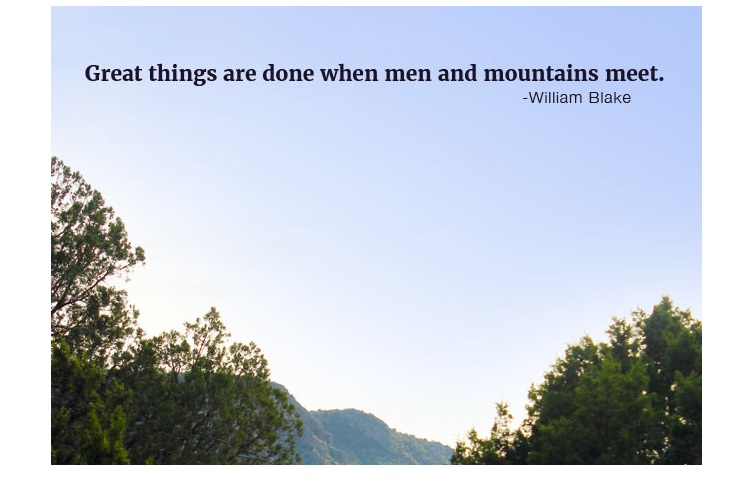
Disrespectful
Gregson admits that at the time the decision felt musically disrespectful – so much so that he seriously considered not writing further major works for the medium.
“Of Men and Mountains was a very important and serious work. I still believe it to be one my best and one that certainly means a great deal to me. Making cuts to it made no musical sense at all. It was a deeply personal composition – the only ‘symphonic tone poem' I have written and dedicated to the memory of a composer I greatly admired."
It was a deeply personal composition – the only ‘symphonic tone poem' I have written and dedicated to the memory of a composer I greatly admired.
Spiritual fulfilment
He added: "The journey that Sue and I made across the Rocky Mountains by train was both memorable and magnificent in so many ways. It is dedicated to Eric Ball and shares his metaphorical appreciation of man’s pursuit for spiritual fulfilment, although I also feel that it also links closely to the musical thought processes of Sibelius and Strauss.”
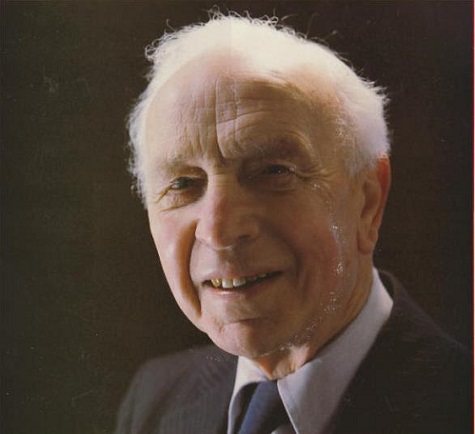
The work is dedeicated to Eric Ball
Similar metaphor
He explained further: “When Eric Ball used a similar metaphor in works such as ‘High Peak’ and ‘Journey into Freedom’, for him it was about spiritual attainment, and elevation to a higher plane of human consciousness. The title comes from a quote by William Blake: ‘Great things are done when men and mountains meet’ – again, alluding to the human condition and its spiritual quest..
The title comes from a quote by William Blake: ‘Great things are done when men and mountains meet’ – again, alluding to the human condition and its spiritual quest..
In the end, I believe that’s what all great music is about, whether it’s Beethoven’s ‘9th Symphony’ or Mahler’s ‘Resurrection Symphony’. Composers, just like other creators in other genres of the arts, are trying to say something about life, about nature, about our struggle and spiritual (not necessarily religious) attainment.
That’s what it’s all about; and in my own small way that’s what ‘Of Men and Mountains’ is trying to express. Reducing that scope just to be able to squeeze it into a specific time fame therefore seemed a rather unreasonable request of any composer.”
Marked appreciation
Although desperately disappointed he found marked appreciation of the work through other outlets – notably several recordings. The first studio recording was made by Soli Deo Gloria, conducted by Jan de Haan (“And a fine recording and interpretation it is too”).
He also conducted it on a substantial 1992 release on the Doyen label with Desford Colliery Band (Gregson: Brass Music Volume 1), whilst it was subsequently recorded by Brass Band Berner Oberland (1993) and Cory (2007) amongst others.
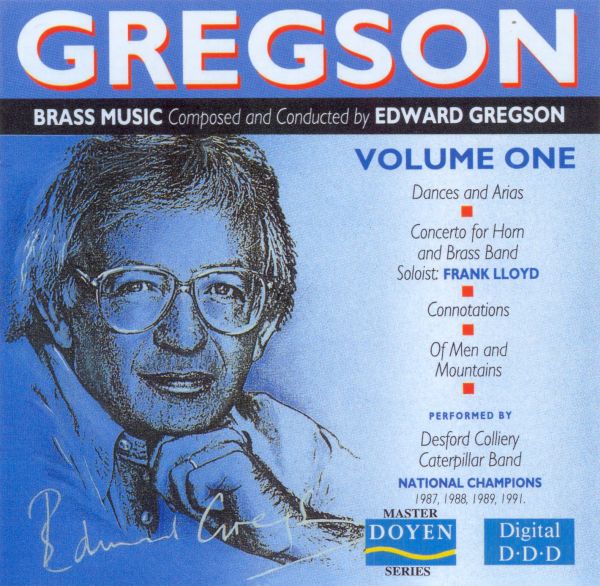
Gregson conducted the work on a 1992 recording
No influence
Athough Edward Gregson continued to work closely with the Boosey & Hawkes Music Advisory Panel alongside William Relton, as it had no direct influence of test-piece selections, the subsequent decision to use ‘Of Men and Mountains’ as the Championship Section set-work at the 1993 Regional Championship series also undermined its major championship credentials.
“I’ve always felt that it is a work that requires the expanse of a major contest auditorium to do it justice," he said. "It is also a work that I feel needs the understanding of the very best conductors and performers.
The decision to use it at the 1993 Regionals was a surprise. I was against using it in that way.
“I’ve always felt that it is a work that requires the expanse of a major contest auditorium to do it justice. It is also a work that I feel needs the understanding of the very best conductors and performers.
It had just been used at the Swiss National Championships and had shown its demands there. I knew Novello who published it at the time felt it offered an opportunity perhaps for sales – it was an expensive work to publish as it was hand engraved.”
Price
That revenue boost to the publisher came at a price to the composer though. ‘Of Men and Mountains’ was then seen by many, including contest promoters, as work of ‘Area’ level considerations. It was anything but, as was shown when it was performed on the contest stage.
Unfortunately it meant that over the next 18 years it appeared as a set-work just three times - at the Mineworkers Championship of 1996, the North American Championship in 2006 and the New Zealand Championship in 2021.
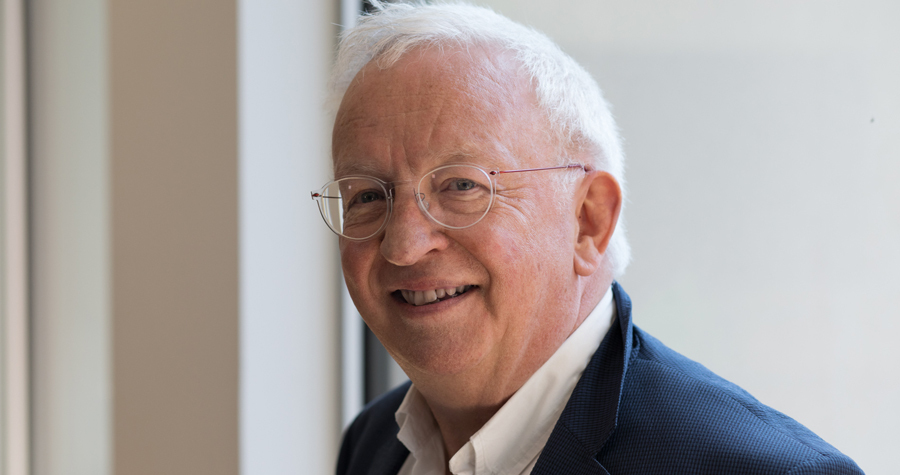
Ahead of its time
However, during that time test-pieces have grown to almost leviathan size, with major Championship works now regularly topping 18 minutes. The irony is not lost on the composer.
“Perhaps it was a little ahead of its time,” Edward says with a ruefully chuckle. “Although I didn’t think so at the time itself.”
I always had the Royal Albert Hall in mind, with its generous and cathedral-like acoustics as the ideal venue
Now though he is looking forward to hearing it played by 20 bands at the Royal Albert Hall in October.
He added: “Another coincidence: the work is of course dedicated to the memory of Eric Ball who died shortly before I commenced writing it, and its use at the Royal Albert Hall on the 21st October will be almost to the day marking the 120th anniversary of his birth. As the saying goes: “God moves in mysterious ways!’”
“My thanks go to Kapitol Promotions and to the Music Panel for choosing it at last. I’m delighted to finally be able to hear it at the contest and at the venue for which it was intended. It is a work that I think will suit the occasion.
I always had the Royal Albert Hall in mind, with its generous and cathedral-like acoustics as the ideal venue. We shall no doubt discover very soon if my hopes are to be realised. 32 years is a long time, but I’m sure it is going to be well worth it.”
Iwan Fox













